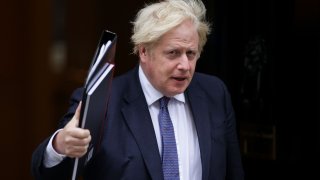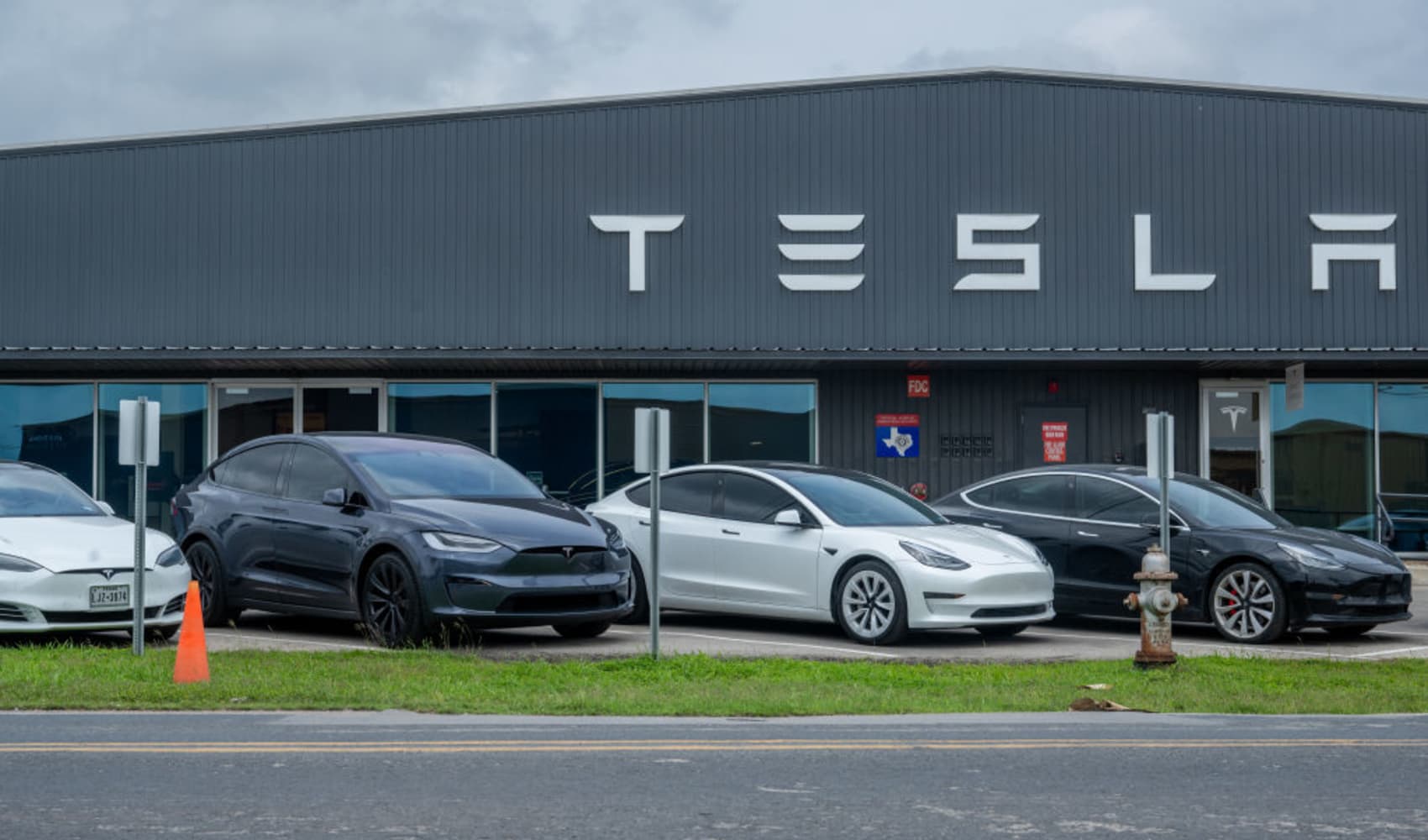
- U.K. Prime Minister Boris Johnson wants to raise taxes to fund social-care reforms and the country’s National Health Service.
- Johnson laid out plans Tuesday to increase the U.K.’s National Insurance levy by 1.25%, with taxes on shareholders also set to go up.
- The move is facing resistance from lawmakers in Johnson’s own Conservative Party, who fear a tax hike could cost votes.
LONDON — U.K. Prime Minister Boris Johnson on Tuesday announced plans to hike taxes to fund health care and reforms to the country's social-care system.
From April, Johnson's government wants to introduce a new 1.25% health- and social-care levy on earned income across England. Tax rates on shareholder dividends will rise by the same amount. It will begin as an increase on the existing National Insurance rate (a current tax on earnings) and become a separate tax on earned income in 2023.
The increased taxes will raise almost £36 billion ($49.6 billion) over the next three years, according to the government, with money from the levy going directly to Britain's health- and social-care systems.
Get a weekly recap of the latest San Francisco Bay Area housing news. Sign up for NBC Bay Area’s Housing Deconstructed newsletter.
The plans require approval from Parliament before they can be enshrined into law.
Speaking to lawmakers in the House of Commons on Tuesday, Johnson said it would be "wrong for me to say that we can pay for this pandemic without taking the difficult but responsible decisions about how we finance it."
The prime minister said that because the new tax rate would be a permanent additional investment in health and social care, it would be "irresponsible" to meet the costs through more borrowing.
Money Report
"Some will ask why we don't increase income tax or capital gains tax instead. Income tax isn't paid by businesses, so the whole burden would fall on individuals, roughly doubling the amount that the basic taxpayer could expect to pay. And the total revenue from capital gains tax amounts to less than £9 billion this year," he told politicians.
"Instead, our new levy will share the cost between individuals and businesses, and everyone will contribute according to their means. Those who earn more will pay more. And because we're also increasing dividends tax rates, we will be asking better-off business owners and investors to make a fair contribution, too. In fact, the highest-earning 14% will pay around half the revenues."
By increasing taxes by 1.25%, Johnson's government aims to tackle crises in social-care funding and National Health Service treatment waiting lists, the latter of which has spiraled amid escalating pressure on health-care services throughout the Covid-19 pandemic.
Under Britain's National Insurance scheme, workers and employers pay a levy that funds certain welfare programs like state pensions, statutory sick pay and maternity pay. People over the state pension age do not pay the levy, which effectively lowers their tax bill.
For workers earning between £797 and £4,189 a month, National Insurance payments are 12% of their earnings. Additional earnings in excess of £4,189 a month are taxed at 2%. Those payments are made on top of income tax.
England's NHS will be given a £5.4 billion cash injection over the next six months to bolster its response to the Covid-19 crisis, the government announced Monday. Of that funding, £1 billion will go toward reducing the treatment backlog created by the pandemic.
In August, an analysis carried out by The Nuffield Trust found that almost 1.2 million people in England were having to wait more than six months to access vital NHS services like cardiology and brain surgery.
Social-care reforms
Johnson also announced Tuesday that new social-care reforms will include a cap on how much individuals pay for care during their lifetime. From October 2023, that amount will be limited to £86,000, although this may not include the price of accommodation in nursing homes.
Currently, people in England must pay for their own care if they have savings and assets of more than £23,250, meaning social care is rarely state-funded.
People who have savings and assets valued between £20,000 and £100,000 will become eligible for "some means-tested support," a form of assistance currently only available to individuals who have assets valued between £14,250 and £23,250.
A shake-up of the country's social-care system has been long-awaited, with people often being forced to sell their homes in order to meet the costs of care.
In his first speech as prime minister in 2019, Johnson said his government would "fix the crisis in social care once and for all," vowing to "give every older person the dignity and security they deserve."
Backlash
However, the prime minister's plans have been met with criticism from some lawmakers in his own Conservative Party, many of whom claim that it would break promises the party made before being elected to form a majority government.
Ahead of the country's last general election in 2019, Johnson made a promise in the Conservative manifesto not to raise the rate of income tax, VAT or National Insurance.
Leader of the House of Commons Jacob Rees-Mogg wrote in his column for the Sunday Express at the weekend that Johnson's U-turn on taxes could cost the Conservatives votes. Drawing on former U.S. President George H.W. Bush's famous quote: "Read my lips: no new taxes," Rees-Mogg argued that "voters remembered those words after President Bush had forgotten them."
Business Secretary Kwasi Kwarteng, Trade Secretary Liz Truss and Justice Secretary Robert Buckland are also said to be concerned about the plans, as are many Conservative lawmakers who are not members of Johnson's Cabinet, the Guardian reported.
Clarification: The text of this story has been updated to reflect the changes will be for how social care in England is funded.






